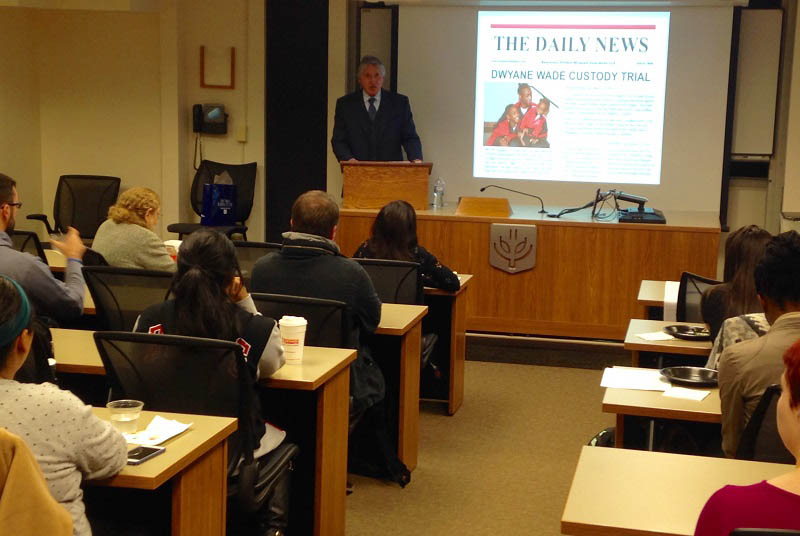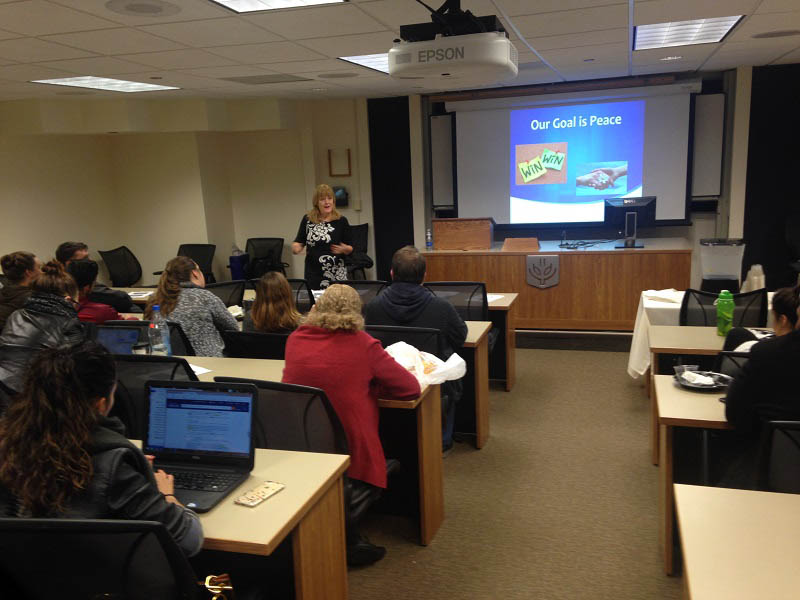DePaul's
Schiller DuCanto & Fleck Family Law Center hosted two Learn-N-Learn events in November.
 James Pritikin explains the concept of parental alienation to DePaul’s family law students.
James Pritikin explains the concept of parental alienation to DePaul’s family law students.
The first featured James Pritikin, a
DePaul Law alumnus and partner at Beermann Pritikin Mirabelli &
Swerdlove LLP, examining Chicago Bulls player
Dwayne Wade's child custody case. As Wade's attorney throughout his divorce, as
well as during the child custody case, Pritikin offered unique
insights into the high-profile suit. Although the custody battle
began as a customary request for visitation and joint custody, it
continued for an unprecedented 38 days and lead to Wade winning sole custody of his sons. A major factor in the case
was the mother's parental alienation, and Pritikin further explored how courts may consider parental alienation when
determining child custody arrangements.
 Sandra Crawford gives an overview of collaborative law in the divorce context.
Sandra Crawford gives an overview of collaborative law in the divorce context.
The second event focused on
collaborative divorces with speaker and attorney Sandra Crawford,
past president of the Collaborative Law Institute of Illinois and a
member of the International Academy of Collaborative Professionals.
Collaborative divorce is a method of ending a marriage using interest-based negotiation. Unlike conventional divorces,
which often require litigation where the court makes the final
judgment, collaborative divorces provide clients with greater control
over the ultimate outcome. Each client hires a team of professionals, such as attorneys, mental health practitioners and financial
experts, who will work with the couple over several months to
resolve their issues. This process leads to more creative solutions,
as well as encourages positive communication between both parties.